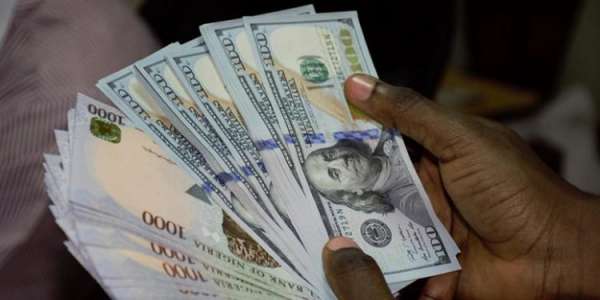Dollar To Naira Exchange Rate Today 30th June 2022
What is the Dollar to Naira Exchange rate at the black market also known as the parallel market (Aboki fx). See the black market Dollar to Naira exchange rate for 30th, below. You can swap your dollar to Naira at these rates.
How Much is Dollar to Naira and the official Exchange Rate today, 30th June 2022?
Please keep in mind that the Central Bank of Nigeria (CBN) does not recognize the parallel market (black market) and has recommended individuals interested in Forex contact their respective banks before proceeding.
The parallel exchange rate (black market rate) is always different from the CBN rate. The exchange rate between the US dollar and the Nigerian Naira significantly impacts the Nigerian economy.
As the Naira falls in value, inflation takes over the economy, which usually impacts the inhabitants. The Central Bank has stated that the Nigerian economy needs a significant turnaround and has asked Nigerians to work toward this goal, such as increasing exports.
The black market rate for dollars is frequently higher than the Central Bank of Nigeria (CBN). The CBN Exchange rate is the rate at which you can purchase or sell dollars for Naira on the CBN dollar-to-naira website, cbn.gov.ng.
The dollar to naira bank rate is the rate you use when you buy something from a foreign website with your Naira MasterCard or Debit card from a Nigerian bank. These rates are almost always cheaper than those available on the black/parallel market.
Dollar to Naira Black Market Rate Today, 30th June 2022
| Dollar to Naira (USD to NGN) | Black Market Exchange Rate Today |
| Selling Rate | 610 |
| Buying Rate | 590 |
Factors Influencing Foreign Exchange Rates
Here are some of the causes of the dwindling dollar to naira exchange rate.
Inflation Rates: It is well known that inflation directly impacts black market exchange rates. If the Nigerian economy can be stabilized and inflation is brought under control, the naira will benefit; however, if the naira continues to fall, it may indicate that food and other necessities are becoming more expensive daily.
Interest Rates: Another tool to keep an eye on is interest rates. If the interest rate at which banks lend money rises, it would harm the economy, causing it to contract and, as a result, the value of the naira to fall.
Government Debt: National debt can impact investor confidence and, as a result, the influx of funds into the economy. If inflows are high, the naira exchange rate will rise in favour of the naira.
Speculators: Speculators frequently impact the naira-to-dollar exchange rate. They stockpile money in anticipation of a gain, causing the naira to plummet even lower.
Conditions of Trade: Favorable trade terms will lead to an increase in the value of the naira to the dollar, although Nigeria is currently experiencing a trade deficit. Everything comes from China, India, and the majority of Asian countries.






















